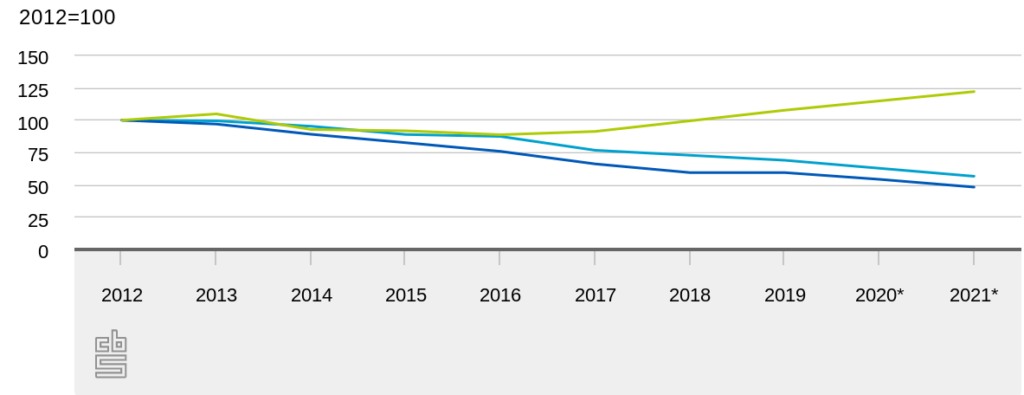A Guide to Cyber Security for SMEs in Europe

Every day, businesses fall victim to cyber crime. Whether it's a ransomware attack that locks down your computer systems until you pay up, or sensitive customer data being stolen and sold on the dark web, the risks are real and growing. If you're an SME, it's crucial that you take steps to protect your business from these threats. In this guide, we'll look at the biggest dangers to your privacy and security, and show you how to effectively mitigate them without major inconvenience and cost.
Threats to your business’ cyber security
In today's digital age, nearly every business relies on computers and the internet in some way or another. And while this increased connectivity has brought many advantages, it has also created new opportunities for hackers and cyber criminals. Small businesses are especially vulnerable to attack, as they often lack the resources of larger companies to invest in comprehensive security measures. As a result, it is important for small business owners to be aware of the major cyber security risks they face.
Below you will find the main threats to your cyber security:
Phishing
One of the most common ways hackers gain access to small business networks is through phishing emails. These are emails that appear to be from a legitimate source, but which actually contain malicious attachments or links. Once opened, these can allow hackers to gain access to sensitive data or even take control of the entire system.
Malware
Another common method of attack is through malware. This is software that is specifically designed to damage or disable computers. Malware can be installed on a system without the user's knowledge, often through infected email attachments or websites. Once present, it can allow hackers to secretly collect information or even take control of the system.
Password security
Sensitive information is only as secure as the password protecting it. A weak password can be easily guessed or broken into by an automated program. Also if a password is too simple, it becomes easier to forget and people often write them down in places where they can be found which increases the risk of unauthorized access to accounts.
Updates
Failure to keep systems and software up-to-date can also leave small businesses vulnerable to attack. Outdated versions of software often have known security flaws that hackers can exploit. By keeping systems and software up-to-date, small businesses can help close these potential security holes.

Your most important defense against cyber attacks
While there are many steps businesses can take to protect themselves from cyber attacks, awareness and education are arguably the most important. After all, it only takes one click on a malicious email or attachment to give hackers access to your network. That's why it's so important for everyone in your organization to be aware of the danger of cyber attacks and how to limit them.
Phishing emails are a common way for hackers to gain access to networks, so it's important to be able to spot them. Look out for spoofed (forged) email addresses, poor grammar, and generic greetings. Malicious attachments (malware) are another common means of attack, so it's important to never open attachments from unknown senders. If you receive an email with an attachment that you weren't expecting, make sure to verify that it's safe before opening it. You can do this by checking the sender's email address and looking for any red flags in the message itself.
If you're still not sure, you can always contact the sender directly to ask if they intended to send you the attachment.
By raising awareness and educating yourself and your employees about the dangers of cyber attacks, you can go a long way towards protecting your business.
A simple technical measure for protection
One of the best ways to ensure strong anti-malware defenses is to use standard software from industry leaders such as Microsoft and Google. Companies like these have a huge vested interest in keeping their products secure, and they invest heavily in research and development to stay ahead of the latest threats.
By contrast, using custom or propriety software can be much more risky. First of all, it's generally more expensive to develop and maintain. But more importantly, it's often less well-tested and less well-understood, making it more vulnerable to attack. So when it comes to information security for basic systems such as email, document processing and internet access, it pays to stick with the big names.
Get in touch with one of our cyber security professionals
[VIDEO] What is 2-factor authentication?
Additionally, make use of the available systems for:
- A password management system. Again these are standard services built-in by most major computer system players but they still need to be configured and actually used!
- 2-factor or multi-factor identification. This adds an extra layer of security by requiring you to enter both a password and a code that is sent to your phone or email. By taking these simple steps, you can help protect yourself from the dangers of weak passwords. Most major communication apps have some sort of built-in authentication functionality. For more advanced use or sharing of very sensitive information, apps such as Zivver are recommended.
Cyber security insurance
These days, many insurers have insurance products specifically designed to protect businesses in the digital age. You can take out company insurance called cyber security (or cyber risk) insurance. This provides cover in the event of damage due to, for example, hacking of your systems and / or data loss. For example, hostage taking of your website, a system crash due to a hack or your liability for loss of data. Read more about company insurance in our guide.
Don’t Be the Next Ransomware Victim
Cyber security risks are a real and growing threat to small businesses. By raising awareness of these risks and taking steps to protect their systems, small business owners can help keep their businesses safe from attack.
